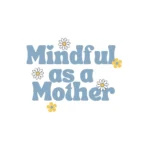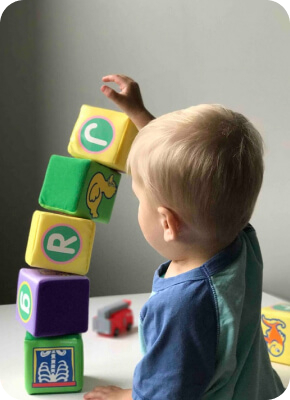Have you ever heard someone say, “Because I said so!”? Maybe you’ve even said it yourself! It’s what we often say when we’re feeling stuck and just want someone to do what we tell them. But this phrase often means we’re using punishment to get our way. What if there was a better, kinder way to help people learn and grow? Good news! There is, and it’s all about using consequences.
Sometimes, people use the words “consequence” and “punishment” as if they mean the same thing. But they are actually very different! Understanding this big difference is super important to help kids (and grown-ups!) truly learn and do well.
What Are Consequences, Anyway? It’s How We Learn!
I even asked parents on Instagram what they thought the difference was, and many didn’t know! It really surprised me.
Simply put, a consequence is what naturally happens after you do something. Think of it as the “what’s next?” after you make a choice. Consequences are there to teach you, show you things, and help you make better choices later on. They’re fair and are directly connected to what you did. It’s all about cause and effect – like a basic rule for how things work!
Remember, consequences aren’t about being mean. They’re about learning.
The Different Kinds of Consequences: What Happens After
Consequences aren’t all the same. They come in different types, and each one helps in its own way:
- Natural Consequences: These are the easiest kind because they just happen all by themselves. No grown-up has to do anything! If you go outside without your jacket on a cold day, you’ll get cold. If you stay up too late, you’ll feel tired in the morning. Natural consequences let you feel what happens when you make a choice. This helps you learn on your own and want to do better next time.
- Logical Consequences: These are connected to what happened, but a grown-up needs to help make them happen. They’re meant to teach a lesson or help fix something. For example, if you draw on the wall, a logical consequence would be helping to clean the wall. If you keep forgetting your homework, a logical consequence might be doing it during recess. Logical consequences give you a chance to learn in a way that makes sense for what you did. This helps kids learn to be responsible and make things right.
This is where I think we often mix up consequences and punishment. Consequences are fair and not about emotions. You don’t give a logical consequence when you’re super mad.
Here’s a true story: A kid drew bad words on a desk at school. The logical consequence was that they had to clean their desk and all the other desks in the classroom. This helped them learn that their actions affect others and that they needed to fix what they messed up.
- Positive Consequences (or Rewards): It’s not always about things going wrong! Positive consequences are the good things that happen when you do something helpful or right. If you always do your homework, a positive consequence could be getting extra free time or a good grade. These help you want to keep doing good things! This is sometimes called positive reinforcement.
The Big Idea: Why Consequences Help Kids Grow
The main reason for consequences isn’t to make anyone feel bad (even though sometimes it feels good to see bad choices lead to uncomfortable outcomes!). Consequences are there to help and guide, which is super important for kids to grow up healthy and happy:
- To Teach: They show you how one thing leads to another. This helps you learn from your mistakes.
- To Build Responsibility: When kids feel what happens after their choices, they learn to own up to what they do and become more independent. This is key for raising responsible kids.
- To Help You Think and Solve Problems: When something happens because of your choice, you have to think about how to not do that again or how to make it better. This is especially good for kids who have trouble thinking ahead.
- To Help You Want to Do Good: Unlike punishment, which makes you scared, consequences help you want to make good choices because you understand why it’s helpful. This builds inner drive – motivation that comes from inside you!
- To Make Relationships Stronger: Because consequences are fair and about learning, they’re much less likely to hurt feelings between parents and kids than angry punishments. This helps with gentle parenting.
Why Ditching Punishments is a Good Idea: A Clear Look
This is where we really see why it’s better to use consequences instead of punishments. Both want to change behavior, but they work in very different ways.
| How It Works | Consequences (Good Ways to Guide) | Punishment (Old Ways to Guide) |
| What It’s About | Learning, growing, solving problems, thinking about the future | Being in charge, getting back at someone, stopping bad behavior now |
| How It’s Connected | Makes sense, directly linked to what happened, fair | Often unfair, not connected, or too harsh, makes you feel bad |
| How It Feels | Calm, helpful, makes you feel strong and respected | Negative, shameful, scary, makes you feel powerless, angry |
| How It Changes You | Teaches responsibility, how to control yourself, bouncing back | Can make you mad, want to fight back, feel bad about yourself, lie |
| Its Big Goal | Guide future behavior by teaching why | Stop bad behavior now by making you feel bad or pay for it |
| Who’s in Charge | The situation/what you did (it helps you feel in control) | The grown-up with power (they tell you what to do) |
| Example | You break a toy, you help fix it or earn money for a new one | You break a toy, you get yelled at or sent to your room for hours |
Punishment often means making someone feel pain or bad feelings to stop them from doing something wrong. It’s often done when someone is angry or frustrated. It usually doesn’t teach a real lesson. The main idea is about what you did wrong and making you “pay” for it. This can make you scared, angry, and just want to hide what you did instead of learning from it.
Consequences, on the other hand, are all about growing and understanding. They come with the feeling of “I know you can learn from this.” They focus on what happened because of your action and give you a chance to fix it or choose differently next time.
The Way Forward: Using Consequences for Better Behavior
Changing from punishing to using consequences takes effort, but it’s worth it! It means:
- Thinking ahead: What will naturally happen because of this choice? How can I help them see that connection?
- Staying calm and steady: Consequences work best when they’re given calmly and are always the same, not when you’re angry. Being steady is super important for good parenting.
- Helping them learn on their own: Letting them experience and understand how their actions create certain outcomes. This builds kids who can rely on themselves.
- Looking for answers: Helping them think about how to make better choices next time, instead of just focusing on past mistakes. This helps them become good at solving problems.
And here’s a secret parenting tip that I love: delayed consequences! This means you don’t have to decide what happens right away. If you’re feeling mad, you can simply say, “I’m not sure what the consequence will be yet, but I will let you know later.” Or even, “I’m too angry right now to decide. I need time to think.” Remember, punishment often comes from anger and doesn’t usually teach a good lesson. Taking your time helps you avoid that.
By really understanding and using consequences, we can stop relying on “Because I said so!” and help everyone learn in a much better way. We help people gain the smarts to handle life with responsibility, to rely on themselves, and to be honest. Isn’t that something amazing to aim for in your family?

